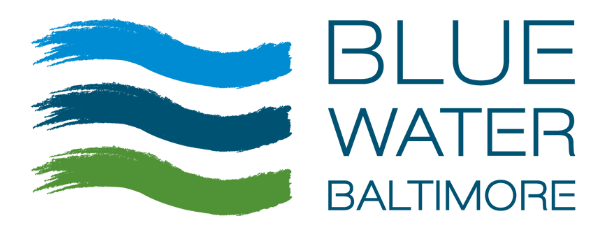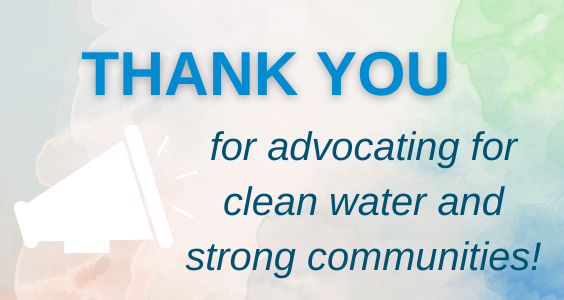What Happened During MD’s Legislative Session?
*Updated 5/31/22 to include information about vetoes
Monday was “Sine Die” in Maryland, meaning that the General Assembly adjourned its legislative session for 2022. Several of our priority bills passed, along with many other environmental bills that we supported led by coalition partners and advocates across the state. YOU made these victories happen by writing to your legislators, posting on social media, and sharing our action alerts with your friends and family. Check out the list below to learn more about what passed, what didn’t, and what we’ll be coming back for in 2023!
If you aren’t already, make sure to sign up for our action alerts so you’re in the loop for future advocacy opportunities!
Maryland Legislative Session Recap
BWB Priorities:
- Passed! Environment – Discharge Permits – Inspections and Administrative Continuations (SB0492 / HB0649)
This bill requires the Maryland Department of the Environment (MDE) to increase its enforcement of pollution permits at facilities that are in significant noncompliance and to address the backlog of “zombie permits,” which have been administratively continued without being updated with the newest technology to protect public health.
This bill makes the Patuxent Riverkeeper a permanent member of the Patuxent River Commission, remedying their and other vocal members’ ungrounded dismissal from the Commission in December 2021.
This bill encourages the use of native plants by classifying invasive plants, helping residents identify native plants through a state website, and requiring state agencies and state-funded organizations to prioritize native plants in planting projects. It originally included a provision to exempt the sale of native plants from sales tax, but that provision was removed.
- Failed: Environment – Single–Use Plastics – Restrictions (HB0135)
This bill would have reduced plastic pollution by preventing food service businesses from providing single-use plastic items such as utensils and straws automatically and only allowing the distribution of these items upon request. The Economic Matters Committee gave an unfavorable report on the bill, preventing it from moving forward.
- Failed: Environment – Green Infrastructure Rebate Program – Establishment (HB1372)
This bill would have created a rebate for property owners to recoup the costs of installing green infrastructure such as rain gardens, cisterns, and green roofs on their property in an effort to increase green infrastructure across the state. The bill was introduced late in session and ran out of time, but we hope to see it reintroduced next year.
Other Bills BWB Supported:
Passed!
- Climate Solutions Now Act of 2022 (SB0528)
Requires MD to reduce greenhouse gas emissions 60% by 2031 and to reach net-zero emissions by 2045 via electric vehicles, building energy performance standards, targeted investments in frontline communities, financing through a new green bank, and green jobs. The final bill is weaker on building electrification than what advocates wanted, but it serves as an important “down payment” for future action.
- Community Solar Energy Generating Systems – Exemption From Energy and Property Taxes (SB0264 / HB0076)
This bill exempts community solar projects that reserve more than 50% of their power for low-to-moderate income households from county or municipal property taxes, increasing access to solar power to the families most impacted by pollution and high energy bills.
This bill requires the Maryland Department of the Environment (MDE) to create and maintain a database of supplemental environmental projects that can be considered as part of a settlement of an enforcement action.
This bill requires an environmental justice analysis of the census tract where applicants seek permits. Permit applicants must include this data in their applications, and MDE must include the analysis in materials provided during public comment periods.
This bill establishes an Office of Resilience and a Chief Resilience Officer to guide resilience initiatives across MD by working closely with state agencies and local governments.
This bill restricts the use and disposal of PFAS chemicals, which are known as “forever chemicals” and are harmful to public health and the environment.
This bill creates a grant program for public schools across the state to pursue strategies to reduce and compost school food waste.
- Public Utilities – Electric School Bus Pilot Program (HB0696)
This bill establishes an electric school bus pilot program, which will reduce children’s exposure to toxins from diesel buses. The bill was folded into the Climate Solutions Now Act (SB0528).
Failed:
- Attorney General – Climate Change Actions – Authorization (HB0363)
This bill would have granted the Attorney General of Maryland the authority to sue the fossil fuel industry, which could help pay for the cost of climate impacts.
This bill would have created a state constitutional amendment to protect our right to a healthy environment that voters would have been asked to vote on in November’s election. To learn more about this bill and plans for reintroducing it, join the 4/26 Environmental Human Rights Gathering.
This bill would have required governments to evaluate potential climate, labor, and environmental justice impacts before taking actions.
- Environment – Products and Packaging – Labeling, Marketing, and Advertising for Recycling (HB0700)
This bill would have ensured that products labeled as “recyclable” or “environmentally friendly” actually have the potential to be recycled in Maryland or are environmentally friendly.
- Environment and Energy – Investment in Overburdened Communities (HB1033)
This bill, similar to the federal Justice40 initiative, would have targeted investments in emergency management, transportation, green infrastructure, energy efficiency, and more towards communities overburdened by pollution who have the least resources.
Note: HB1033 didn’t pass, but some of the bill’s language was incorporated into this year’s budget.
The legislature passed this bill to require State transportation plans, reports, and goals to consider equity, but Governor Hogan vetoed it. This law could have helped prevent a repeat of the 2015 cancellation of the Red Line, which would have provided light rail connectivity between predominantly Black East and West Baltimore.
- Outdoor Preschool License Pilot Program (HB0376)
This bill would have created a pilot program to license outdoor, nature-based early learning and child care programs in order to expand access to affordable, high-quality early learning programs and to investigate the benefits of outdoor, nature-based classrooms.
- Reclaim Renewable Energy Act of 2022 (HB0011)
This bill would have removed dirty energy sources including poultry litter-to-energy, trash incineration, woody biomass incineration, methane from anaerobic digestion, and landfill-gas-to-energy from Maryland’s Renewable Portfolio Standard (RPS) to ensure that clean energy subsidies don’t go to activities that threaten public and environmental health.
- Solid Waste Disposal and Diversion and On–Farm Composting and Compost Use (HB1070)
This bill would have established a $5-per-ton surcharge for waste disposed at Maryland’s landfills, trash incinerators, and transfer stations to fund waste diversion projects and infrastructure including reduction, reuse, repair, composting, recycling, and anti-dumping.
- Task Force on Recycling Policy and Recycling and Waste Systems in Maryland (HB0217)
This bill would have required a review of the 30-year-old Maryland Recycling Act to assess what’s working, what’s not, and to update the Act as needed to ensure MD’s waste management programs are as effective as they can be.
We also initially supported Environment – Packaging Materials – Producer Responsibility (HB0307 / SB0292), but we changed our position after listening to coalition partners’ concerns that the bill gave too much control and decision making power to industry. After thoughtful research and reflection, we decided that the potential negative effects of the bill as drafted outweighed the pros. This legislation did not move forward this session, and we look forward to working with our partners on a stronger bill next year.
Overall, this was a productive and fruitful session with several significant environmental wins. This work isn’t possible without you – our members – contacting your legislators, posting on social media, and sharing our action alerts with your friends and family. If you aren’t already, make sure to sign up for our action alerts so you’re in the loop for future advocacy opportunities at the local and state level.

